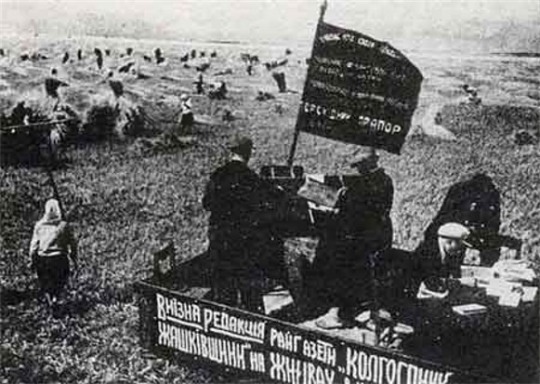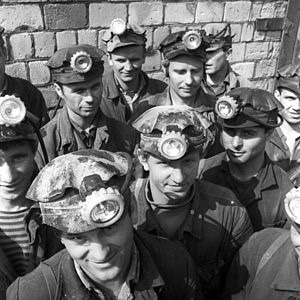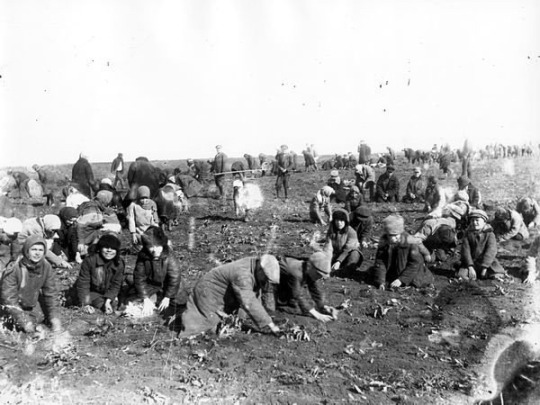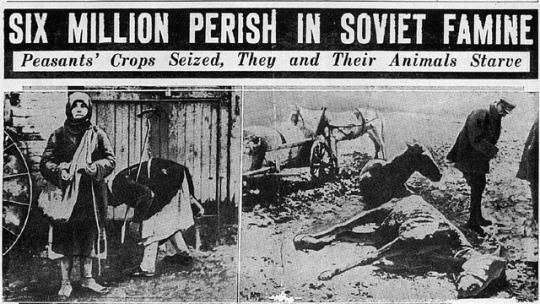Photo

Collective Farm in the Soviet Union
9 notes
·
View notes
Photo

In 1949, Joseph Stalin arranged several assassination attempts on Josip Broz Tito, the Prime Minister of Yugoslavia. In response, Tito wrote Stalin a letter that said. “Stop sending people to kill me. We’ve already captured five of them, one of them with a bomb and another with a rifle… If you don’t stop sending killers, I’ll send one to Moscow, and I won’t have to send a second.” Source
15K notes
·
View notes
Text
Category: Political Opponents
Source taken from: https://www.bbc.com/bitesize/guides/ztqmwxs/revision/1
What we can infer from the source (after Stalin's rule for the political opponents and the farmers, but main focus is the political opponents) : The life of the political opponents are having a peaceful life as well as the farmers through Stalin's rule in the Soviet Union after collectivisation was implemented by Stalin. The reason was that because before collectivisation was implemented, there was insufficient amount of food to feed the population even though the Kulaks were mostly successful, so Stalin in 1927 said that collectivisation must be implemented and improvised in order to have sufficient amount of food in order for the country to survive. The source states: " Although the kulaks were relatively wealthy and successful, the thousands of tiny, backward peasant farms were not producing enough to feed the population."

0 notes
Text
Category: Political Opponents

Source taken from : https://www.romstudio.blogspot.com/2017/05/the-ussr-life-under-stalin.html
(russian) In the food shop Nt 5 of the district of Stalinsk region, stop the first sale of goods at reasonable prices
What we can infer from the source: The life of the political opponents were tough during Stalin's rule in the Soviet Union. The Soviet people are crowding around in the shop for food and if they are unable to get food, it will lead to starvation and in the end, death. The source shows the people crowding in the food shop, getting the first sale of goods at reasonable prices that they can afford, there are more people at the back will have a competition on getting the first sale of goods such as food.
0 notes
Text
Category: Workers
Source taken from: https://www.orlandofiges.info/section1_OriginsoftheRussianRevolution/TheConditionsoftheWorkingClass.php
What we can infer from the source: The life of the workers during Stalin's rule in the Soviet Union was harsh/tough. The life of the workers was harsh because the workers during that time are being ill-treated by their factory workers, and being treated like slaves, and being treated harshly even if it is a huge injury, there is no help for them to count on, makes their life tough. The source states: "Yet most workers were denied a legal right to insurance, and if they lost an eye or limb, could expect no more than a roubles' compensation." and "Many factory owners treated workers like their serfs."
Picture taken from the internet : Orlando Figes

0 notes
Text
Category: Workers
Source included : https://www.orlandofiges.info/section1_OriginsoftheRussianRevolution/TheConditionsoftheWorkingClass.php
What we can infer from the source: The life of the workers during Stalin's rule in the Soviet Union was terrible because the workers there are treated as low-class wages that is easily satisfied than anything else, therefore making their lives of the workers during Stalin's rule in the Soviet Union having a much harder time. The source states : "According to Count Witte, the Finance Minister in charge of Russia's industrialization until 1905, the worker 'raised on the frugal habits of rural life' was 'much more easily satisfied' than his counterpart in Europe or North America, so that 'low wages appeared as a fortunate gift to the Russian enterprise' ."

0 notes
Text

Category: Farmers
picture from the internet
The farmers
-
Inference, Explanation and Evidence
The source shows me that the life of farmers had lived through Stalin's rule in the Soviet Union is that the life of farmers are that they are having a difficult life in terms of the Kulaks' demands and deprivation of benefits that they are unable to have now that collectivisation is improvised in the country. The life of the farmers are having a difficult life because the Kulaks were unhappy of the idea that was thought by Stalin himself for the agriculture and collectivisation as well, which led to burning of crops, therefore suffering in a famine , without any food or water, this shows me that the farmers are having a difficult life because of the Kulaks' unhappiness towards Stalin's idea. The source states :" As Stalin's orders to enforce collectivisation were carried out, many Kulaks responded by burning crops, killing livestock and damaging machinery. The result was a famine. The country struggled to feed itself." and " The Kulaks hated Stalin's idea. It would deprive them of the life they were accustomed to. They would lose the benefits that they had enjoyed of being the better off farmers."
Source taken from : https://www.schoolshistory.org.uk/topics/european-history/russia-soviet-union/collectivisation-agriculture-stalin/
0 notes
Text
Category : Farmers
(photo credits to encyclopaedia of Ukraine)
Stalin enforcement of collectivisation in agricultural and the Great Famine
Inference, Explanation and Evidence
The source shows me that the life of the farmers who had lived through Stalin's rule in the Soviet Union is that the life of farmers is very miserable. The life of the farmers were miserable because the impacts of the enforcement of collectivisation that caused lots of Kulaks executed or died of starvation, which life is harder to survive, and the Kulaks being forced to do work, and those Kulaks have not migrated will either get killed or forced to work, which also the farmers are having a hard time and, 7 million Kulaks died by 1934. The source states : "Many were sent to Gulags or forced to migrate to Siberia to work in lumber yards. The famine that followed in 1932 was catastrophic. In Ukraine, 5/6 million people died of starvation. Kulak's who had not already migrated were forced to, or executed. By 1934, some 7 million Kulaks had been killed."
Source taken from : https://www.schoolshistory.org.uk/topics/european-history/russia-soviet-union/collectivisation-agriculture-stalin/

1 note
·
View note

